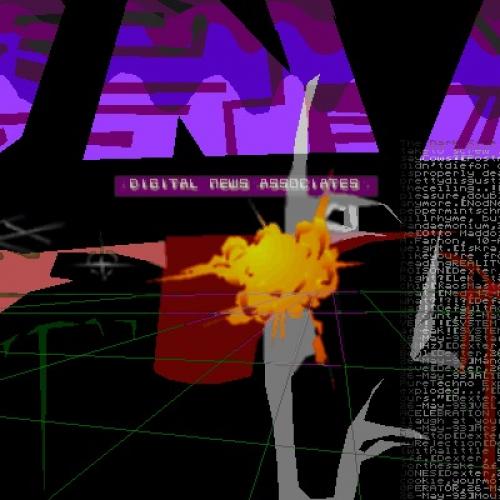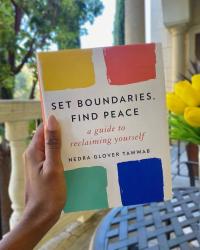DnA 8-3: Our Second Amendment Rights

The following is a brief essay on the 2nd Amendment to the United States Constitution by Michael W. McBroom. (c) 1994 Michael W. McBroom. Permission to quote from the following essay, in whole or in part, is granted, providing credit is given the author.
"A well regulated Militia, being necessary to the security of a free State, the right of the people to keep and bear Arms, shall not be infringed."- Amendment II, United States Constitution
It wasn't by happenstance that the right "to keep and bear arms" was placed in the penultimate position within the framework of the Bill of Rights. Our forefathers knew full well that an armed and prepared citizenry would make it much more difficult for an invader or a tyrannical government to seize the reins of power, and that such a step was necessary if the United States were to survive at all. The fledgling country had just gone through a protracted and bloody fight over the lofty principles set down in the Declaration of Independence, and its leaders had no desire to do it again. But the result of their vision and their toil, sacrifice and bloodshed was worth it: a free society founded on the laws set forth in the U.S. Constitution and the Bill of Rights.
Remember, please, those inspired words in the Declaration of Independence: "We hold these truths to be self-evident, that all Men are created equal, that they are endowed by their Creator with certain unalienable rights, that among these are Life, Liberty and the Pursuit of Happiness . . ." These unalienable rights were then further spelled out in the Constitution and in the Bill of Rights.
Unfortunately, nowadays most Americans, especially the youngamongus, just go "Duh-=<<<Z0nE>>>=-So what's so special about that?" What, indeed?
We've lived in complacency far to long, folks. We've known the good life for so long that we can't conceive of anything else. Even our poor are the richest poor in the world. And in today's shaky economy, Americans are probably still better off than 95% of the rest of the humans on this globe -- and that includes the Japanese. We've forgotten how fortunate we are to have a framework such as the U.S. Constitution to protect our freedoms.
The "unalienable rights" mentioned in the Declaration of Independence are those rights that transcend government. They are undeniable. They are fundamental rights granted to humankind by the Creator (or whomever or whatever you feel most comfortable with), which no government may rightfully set aside. In other words, laws governing, controlling, or regulating these unalienable rights are out-of-bounds. They are taboo; they are not permitted -- they are UNCONSTITUTIONAL.
Misconceptions and the Truth
"A well regulated militia, being necessary to the security of a free State . . ." Whenever a discussion or debate occurs regarding the 2nd Amendment and the intentions of its authors, most of the attention centers on this very first phrase. Have you ever wondered why? Because this is the one phrase in the 2nd Amendment that allows the Liberal Left the most wiggle room, that's why.
For decades now, liberals have been shoveling shinola at us about the meaning of "A well regulated militia." Let's take a look at "well regulated" first. In order to understand what our founding fathers meant by "well regulated," we MUST view these words in their original context; that is, we must give them the definition that was used in the 1770's. In those days, a firearm was said to be "well regulated" if it was accurate. And a rifleman was considered "well regulated" if he could shoot straight -- not a mean feat considering that many of the long guns used at the time were smooth-bore muskets!
Some of you will scoff and say this interpretation is nothing but more NRA-sponsored pro-gun propaganda. Fine, go ahead and smirk, but do check it out for yourself, won't you? What you'll find may surprise you. As it turns out, this was a term in use long before and long after the Bill of Rights was penned. During the days of the Old West, in fact, some of the most feared men to strap on a six-gun were known as "regulators." And it wasn't because they were from the "gummint" looking for folks who spit on sidewalks, either. Nope, these regulators were often guns for hire -- and what they shot at, they hit. Still don't believe me? Go to your favorite well-stocked video store and rent "Missouri Breaks." It stars Jack Nicholson and Marlon Brando. Brando plays the regulator, and does a bang-up job of it, too.
To this same group of leftists, who would have you believe "well regulated" means a liberal dose of government interference, the word "militia" means the military or the National Guard. Writings by the framers of the Bill of Rights clearly indicate otherwise. Our forefathers had a long-standing and profoundly deep mistrust of a standing army; they were vehemently opposed to it, choosing instead to rely on a civilian militia. And the National Guard did not come into being until much, much later -- until 1903, to be exact. Thus, in those first formative years of our country, the "militia" were all able-bodied men and some women who owned firearms, and knew how to shoot them -- in fact, if you fell into this broad category, it was your patriotic duty to be ready and able to defend your country. Restrictions, regulations and requirements would come much later, once the ossification of the federal government began setting in and slick lawmakers took it upon themselves to twist the meanings of such basic principles.
". . . being necessary to the security of a free State . . ." This phrase is abundantly clear in intent, but it should be noted that our forefathers weren't just concerned about our national security being threatened by foreign powers. They were equally concerned about the possibility of a tyranny arising from within the federal government, and repeatedly warned against the prospect of this occurring. They were also concerned about self- defense, reasoning that if crime ran rampant in America, there would be little if any security remaining.
". . . the right of the people to keep and bear Arms . . ." This is, without question one of the most quoted and heavily debated phrases in the entire U.S. Constitution. Debate has raged in recent times over whether the framers intended this to mean an individual right or a collective right. Once again, the liberal, anti-gun crowd has done its level best to try and have this phrase interpreted to mean the people's right to keep and bear arms is a collective right. This is important to their argument, because it strips from the INDIVIDUAL the right to keep and to bear a firearm. It also lends credence to their argument that militia means some sort of organized military force, despite abundant evidence to the contrary. And contrary evidence exists -- plenty of it, in fact -- that the right to keep and bear arms was always intended by our founding fathers to be construed as an individual right. In 1990, the U.S. Supreme Court agreed, in the case U.S. v. Verdugo-Urquidez, that the right to keep and bear arms is an individual right held by "the people," which the court defines as all "persons who are part of a national community."
The word "bear" is extremely important, and is often neglected when the Second Amendment is discussed. Ah, but don't liberals like Senator Patrick Moynihan, who want to ban ammunition, or tax it out of existence, wish the word "bear" wasn't there! When arms are brought to bear, they are fired. In order to fire a firearm, one must have ammo. And since the Second Amendment expressly states the individual right to "bear" arms, ammunition for the arms is just as fundamental a right to possess as the arms themselves.
". . . shall not be infringed." Of the four clauses in the Second Amendment, this, the last one, is by far the clearest in its meaning. But it is also the one clause that is most consistently ignored by our illustrious lawmakers. Still, there can be no doubt: No means NO! "Shall not be infringed" means, under no circumstances, can (they) be diminished. Period. End of story. Yet we have seen a steady erosion of the Second Amendment since 1934, with the passage of the National Firearms Act, and even earlier in some cases. Over the past several decades, our lawmakers have chosen to ignore the language of the Second Amendment and have passed blatantly unconstitutional legislation, relying on the reluctance of firearms owners to bring constitutional challenges before the Supreme Court.
To divert attention from their maneuverings, the liberal gun-grabbers have produced a separate fiction. Each time they introduce a new piece of oppressive, unconstitutional anti-gun legislation, they talk reassuringly about how they have no desire whatsoever to deprive hunters and sportsmen of guns that can be used for "legitimate sporting purposes." This is nothing but a smokescreen, folks, designed to cover up their real intentions, which is nothing less than the disarming of the American people.
How do I come to this conclusion? Easy.
Even the most basic interpretation of the Second Amendment will reveal that its purpose is to provide for defense and protection by force of arms. Nowhere in the U.S. Constitution or in the Bill of Rights is there reference to Americans having the right to keep and bear arms for hunting or for target shooting, although modern-day liberals would have you believe these are the only firearm rights you deserve, if you're lucky, if they're in a good mood, if it's a good hair day. When the 2nd Amendment was written most average families supplemented their diets with game, so hunting was simply a given. And in order to deck the game you were aiming at, you had to be a pretty good shot, which meant target shooting was as necessary as gun powder -- once again, a given.
Thus, because such basics of life as hunting and marksmanship practice were taken for granted by the founding fathers, just as the right to breathe was, the importance of the Second Amendment should become even more apparent: it ain't about hunting, folks -- it's about freedom!
Yes, freedom. That's the meaning behind the Second Amendment, and the meaning is clear, especially when viewed in the context of the time in which it was written. Put into everyday modern English, the Second Amendment has always meant, and still means:
"So that this country will remain free and secure, able-bodied citizens who are competent with firearms shall not be denied them or their use."
It's really that simple, folks.
Michael W. McBroom
February 26, 1994






















